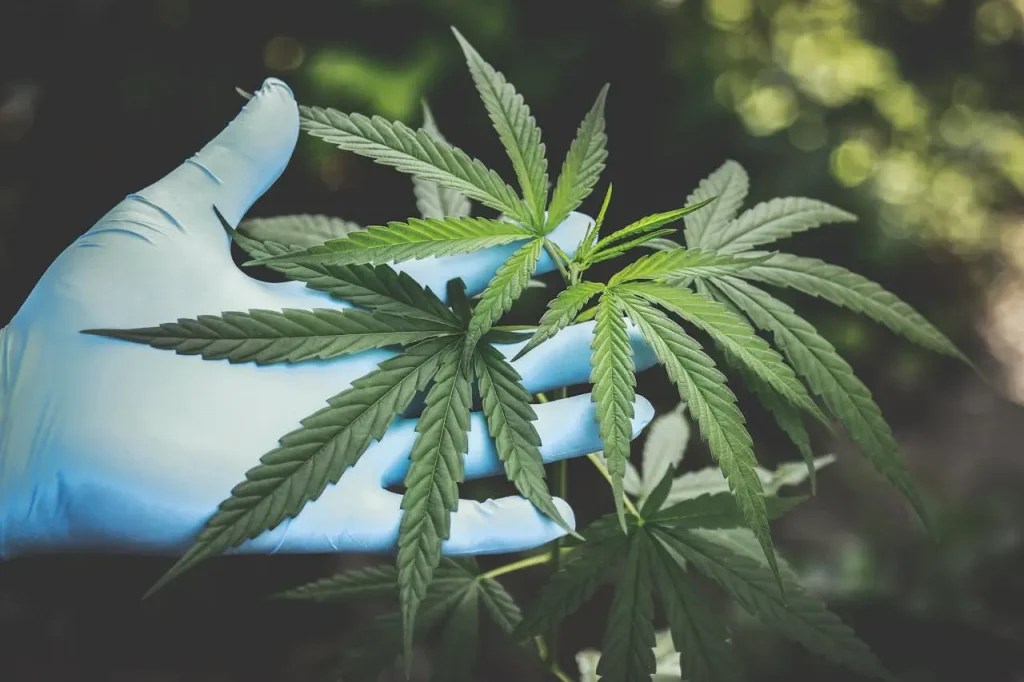Unveiling the Contrast: CBD versus THC- Understanding the Difference

Are you confused about the difference between CBD and THC? You’re not alone. These two compounds found in cannabis plants seem similar, but they have distinct properties and effects. In this article, we will unveil the contrast between CBD and THC to help you understand their unique characteristics.
What is CBD?
CBD, short for cannabidiol, is a non-intoxicating compound that offers a wide range of potential therapeutic benefits. It is derived from the hemp plant, which contains low levels of THC. Unlike THC, CBD does not produce a psychoactive effect commonly associated with marijuana use. This means that CBD does not cause a “high” feeling.
CBD interacts with the body’s endocannabinoid system (ECS), which plays a crucial role in regulating various physiological processes such as sleep, mood, appetite, and pain sensation. By interacting with the ECS, CBD may help promote balance and overall well-being.
One of the key benefits of CBD is its anti-inflammatory properties. It has been shown to reduce inflammation and provide relief from conditions such as arthritis, multiple sclerosis, and inflammatory bowel disease. CBD also has analgesic properties, making it an effective option for managing pain without the addictive properties of opioids.
What is THC?
THC, or tetrahydrocannabinol, is the psychoactive compound responsible for the “high” associated with marijuana use. Unlike CBD, THC can alter your state of mind and produce euphoria. This is why THC is predominantly found in marijuana, while CBD is more commonly extracted from hemp plants.
When THC enters the body, it binds to cannabinoid receptors in the brain, specifically the CB1 receptors. This interaction leads to various effects, including relaxation, altered perception of time and space, and increased appetite. THC is often used recreationally for its psychoactive properties.
While THC is known for its recreational use, it also has potential medical benefits. It can provide relief from pain and nausea, making it useful for patients undergoing chemotherapy or suffering from chronic pain conditions. Additionally, THC can stimulate appetite, which can be beneficial for individuals with eating disorders or those undergoing certain medical treatments.
The effects of CBD and THC on the body
CBD and THC interact differently with the body’s endocannabinoid system, resulting in distinct effects. As mentioned earlier, CBD does not produce the psychoactive effects associated with THC. Instead, CBD may promote a sense of relaxation and calmness without impairing cognitive function or causing a high.
In contrast, THC binds directly to CB1 receptors in the brain, leading to the euphoric and psychoactive effects commonly associated with marijuana use. These effects can vary depending on the individual and the strain of cannabis consumed. Some users may experience heightened sensory perception, while others may feel more relaxed or even anxious.
It’s important to note that the effects of CBD and THC can be influenced by various factors, including dosage, method of consumption, and individual tolerance. Understanding these differences can help you choose the right cannabinoid for your specific needs.
Medical uses of CBD and THC
Both CBD and THC have shown promise in the field of medicine, but they are used for different purposes. CBD is commonly used to manage various conditions, including:
- Pain Management: CBD’s analgesic properties make it effective in reducing pain associated with conditions such as arthritis, fibromyalgia, and neuropathy.
- Anxiety and Depression: CBD has been found to have anti-anxiety and antidepressant effects, providing relief for individuals with anxiety disorders and depression.
- Epilepsy: CBD has gained attention for its potential in treating epilepsy, specifically certain types of seizures that are resistant to traditional medications.
- Neurological Disorders: CBD may have neuroprotective properties, making it a potential treatment option for conditions like Parkinson’s disease and multiple sclerosis.
On the other hand, THC is primarily used for:
- Pain Relief: THC’s analgesic properties can help manage chronic pain conditions and provide relief for cancer patients undergoing chemotherapy.
- Nausea and Vomiting: THC can reduce nausea and vomiting, particularly in patients undergoing chemotherapy or experiencing side effects from other medications.
- Appetite Stimulation: THC’s ability to stimulate appetite can be beneficial for individuals with eating disorders or those suffering from weight loss due to medical conditions.
Legal status of CBD and THC
The legal status of CBD and THC varies from country to country and even within different states or regions. In general, CBD extracted from hemp plants with less than 0.3% THC is legal in many countries, including the United States. However, CBD derived from marijuana plants with higher THC levels may be subject to stricter regulations.
THC, on the other hand, is still considered a controlled substance in many countries. While some states in the United States have legalized recreational or medical marijuana use, it remains illegal at the federal level. It’s crucial to familiarize yourself with the laws in your specific jurisdiction before purchasing or using any cannabis products.
Side effects and risks of CBD and THC
Both CBD and THC are generally well-tolerated, but they can cause certain side effects. CBD is known to have minimal side effects, which may include drowsiness, dry mouth, and changes in appetite or weight. These side effects are typically mild and temporary.
THC, on the other hand, can cause more pronounced side effects, especially at higher doses. Common side effects of THC include dry mouth, red eyes, impaired memory and coordination, increased heart rate, and anxiety or paranoia in some individuals. It’s important to start with a low THC dosage and gradually increase it to minimize the risk of adverse effects.
It’s worth noting that the long-term effects of CBD and THC are still being studied. While CBD is generally considered safe, more research is needed to fully understand its potential interactions with other medications or its long-term effects on the body. THC, especially when used recreationally or in high doses, may have a higher risk of dependency and negative cognitive effects.
CBD vs. THC: Which is right for you?
Choosing between CBD and THC depends on your specific needs and preferences. If you’re looking for therapeutic benefits without the psychoactive effects, CBD may be the better option. It offers a wide range of potential benefits, from pain relief to anxiety reduction, with minimal side effects.
On the other hand, if you’re seeking the euphoric and psychoactive effects associated with marijuana use, THC may be more suitable. It can provide relief from pain, nausea, and stimulate appetite, but it also carries a higher risk of side effects and potential legal implications.
It’s important to consult with a healthcare professional or cannabis specialist to determine the best cannabinoid and dosage for your individual needs. They can help you navigate the options available and provide personalized recommendations based on your specific condition and goals.
CBD and THC products on the market
With the growing popularity of CBD and THC, there is now a wide range of products available on the market. CBD products come in various forms, including oils, tinctures, capsules, edibles, topicals, and even pet treats. These products offer different methods of consumption and dosage options to suit individual preferences.
THC products, on the other hand, are more commonly found in marijuana dispensaries or recreational stores where it is legal. These products include flowers or buds, edibles, concentrates, tinctures, and vape cartridges. It’s important to note that the THC content in these products can vary, so it’s crucial to read labels and choose products with the desired potency.
When purchasing CBD or THC products, it’s essential to choose reputable brands that provide third-party lab testing to ensure product quality and safety. This can help you avoid potential contaminants or misleading labeling, ensuring that you’re getting a reliable and effective product.
Conclusion: Understanding the difference between CBD and THC
In conclusion, CBD and THC are two distinct compounds found in cannabis plants, each with its own set of properties and effects. CBD offers potential therapeutic benefits without the psychoactive effects, making it a popular choice for those seeking natural remedies. THC, on the other hand, provides the euphoric and psychoactive effects associated with marijuana use, along with potential medical benefits.
Understanding the differences between CBD and THC is crucial, especially for those considering using cannabis products for medicinal or recreational purposes. By clarifying their distinct effects and properties, you can make informed decisions about the right cannabinoid for your needs.
Remember, it’s always advisable to consult with a healthcare professional or cannabis specialist to determine the best course of action for your specific condition and goals. With the right knowledge and guidance, you can navigate the world of CBD and THC with confidence, harnessing their potential benefits while minimizing risks.


